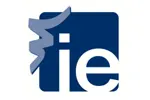

| The award | How you will study | Study duration | Course start | Domestic course fees | International course fees |
|---|---|---|---|---|---|
| Other Masters | Full-time, Online | 10 month | October | EU 19 | EUR 19 |
Contact IE University to find course entry requirements.
Below are some suggested courses at other providers that you may also be interested in:
Preparatory Courses in English for Degree Studies (Medical, Business, Architecture and Engineering, Psychology, English and American Studies) UG:Foundation, UG:Foundation, UG:Foundation
University of PĂ©cs
Find out moreIf you do not meet the entry requirements for this course then consider one of these postgraduate preparation courses from another institution:
Pre-Master's Programme in Business, Economics, Finance and Management
ONCAMPUS Southampton
Find out moreThere are 21 other courses listed from IE University. A selection of these are displayed below:
Join the Сưłć´«Ă˝ email list and never miss a chance to turn your study abroad dreams into reality!
